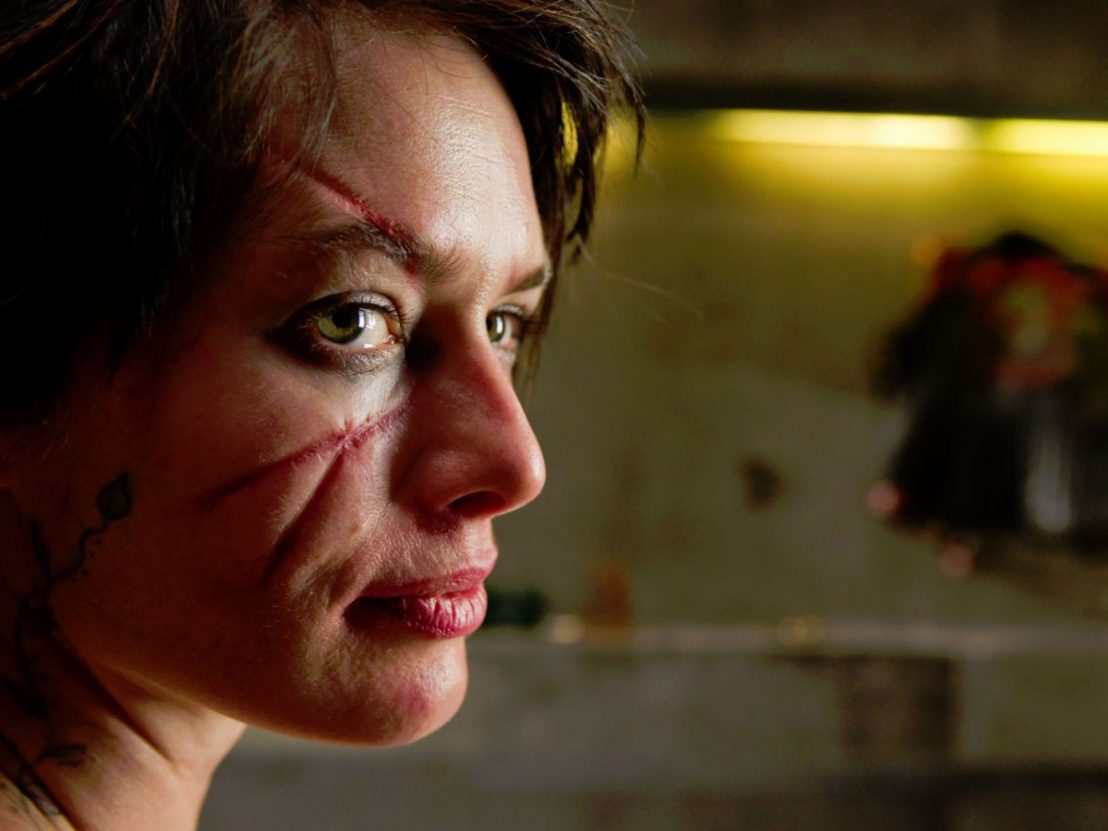
It’s hard to know whether actors cherish or despise the opportunity of playing the antagonist in a comic book movie. Reaching that point in a career where you’re being considered for roles of a certain calibre and import can only be a good thing. But then again, is it that far removed from panto season, dredging up all the grotesque tics and traits which will have an audience hissing at you with vengeful glee?
Sure, maybe your garden variety modern Marvel movie have moved on from the standard-issue cackling evildoer with sights set on global domination. But these characters seldom exist as more than a necessary context for the good guys to get motivated and go out and do their crimefighting thing.
There is one actor who is making a killing from the excesses that come with these villain roles, and that’s Lena Headey. In TV, she answers the hypothetical question, ‘what if Lady Macbeth had actually survived?’, through her supremely macabre take on literary femme fatale extraordinaire, Cersei Lannister, in Game of Thrones. She is a raging matriarch who happily chokes back indignity and is fuelled by a taste for long-game revenge. She radiates malevolence in her every syllable, yet she has somehow become one of the show’s most beloved characters because of her ferocious survival instincts.
Before Game of Thrones developed into the multi-tendrilled geopolitical behemoth that it is now, Headey sealed her credentials by giving us one of the great comic book baddies of modern times in Pete Travis’ massively underrated 2012 feature, Dredd. She plays Ma-Ma, a goth siren who has clawed her way to the top of a criminal syndicate which operates from a futuristic high-rise block with the genteel name of Peach Trees. Her methods recall those of the modern Mexican cartels, with each punishment doubling as an example set to potential traitors. She doesn’t just want you to die, she wants you to experience the maximum amount of pain imaginable before she transforms you into an unidentifiable slurry of post-human chum.
Judge Dredd, played by Karl Urban, is hauled in to put an end to her operation, and she quickly proves to be every bit the formidable foe. The extent of her antipathy towards human life is ramped up to ludicrous extremes, but through Headey’s coldly methodical performance, this savage rancour takes the form of a relatable, banal variety of evil. In one set-piece sequence, she has Dredd cornered opposite her armoury of heavy ordinance mini-guns, and decides to make a personal appearance in order to witness the killing. Headey orders her men to open fire with chilling nonchalance. Indeed, most of her dialogue is uttered in an ultra laconic drawl which signals both her abiding drug habit and an absolute indifference towards the suffering of others.
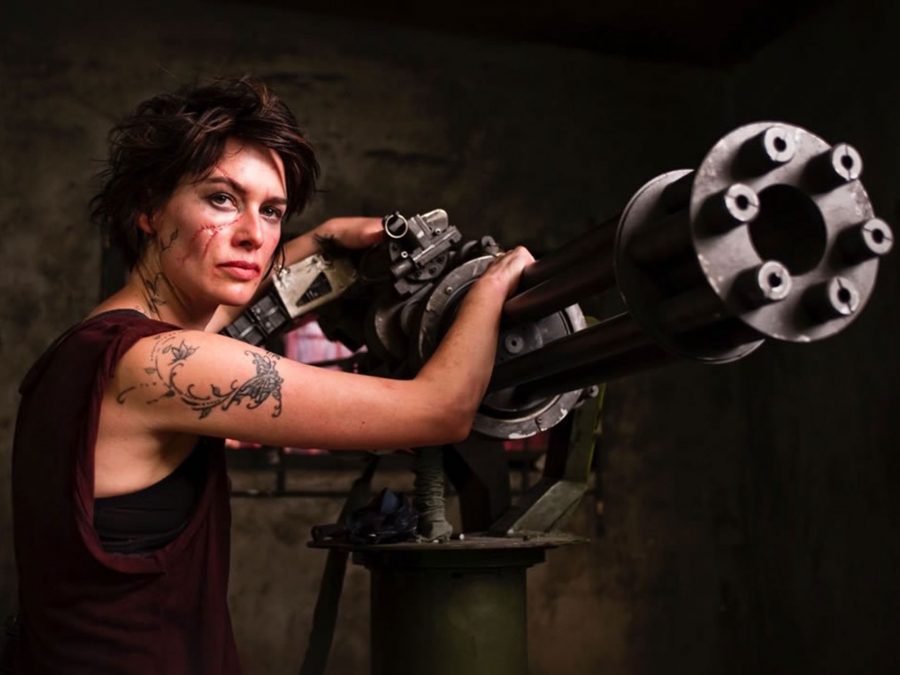
The guns fire and the bullets slice through innocent bystanders. But Ma-Ma wants results, and so sidles up to one of the guns and begins pumping the trigger herself. Again, a lesser performer may have used this moment to ramp up the energy with a maniacal laugh or a wailing climax of violent pleasure, but sentiment barely registers on Headey’s face. This, for Ma-Ma, is little more than a ritual altercation that will be dealt with in the proper fashion. She channels her own years of degradation and pain via the knee-jerk ease with which she is driven to murder.
In the film’s production notes, Headey admits that she found inspiration for the role not in other comic book movies, but in punk poet Patti Smith. She has a battle-scarred, elegantly wasted look, very comfortable in her own mutilated skin and precision focused on the job at hand. It’s an elegant, careful performance where all emotion is tamped down, but at the same time, remains visible through her piercing eyes. Alongside Smith, Heady’s mannerisms and air of supreme confidence hark back to the likes of Barbara Stanwyck in Double Indemnity or Rita Hayworth in The Lady From Shanghai. She has men running around for her, doing her bidding, petrified at the prospect of letting her down. Except, with Ma-Ma, there’s is no alluring smokescreen that masks a sense of playful mischief. Her rawness is both interior and exterior.
Though Headey has made a career from juicy genre roles, her skills as a performer will hopefully see her branch out successfully to other types of character and story. It would be a shame if she settled into the rut of rent-a-baddie for the foreseeable future, as what she proves through Dredd and Game of Thrones is that she is able to make these diabolical people come across as real, lived-in souls. So many actors tell rather than show, and through her quietly intense and patient acting style, Headey shows everything and tells nothing. She is one of Britain’s best and most exciting actors.
At the finale of Dredd, as she descends to her death in a glowing, slow-mo reverie, what hits hardest is the expression on her face as she plummets down the central atrium of Peach Trees to the hard ground below. There is no fear at the prospect of her imminent demise. Nor is there a sick pleasure taken in the irony that she is getting a taste of her own bitter medicine. It is a look of sublime indifference. It makes it hard for pleasure to be taken in her operatic passing, as the Judge dishes out tough, on-the-spot justice from on high. Against insurmountable odds, Headey actually manages to make Ma-Ma’s death feel tragic.
Published 16 Jul 2017
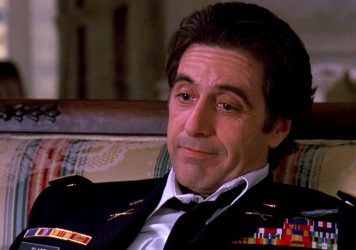
By Ian Mantgani
There’s something deeply entertaining and moving about his widely ridiculed lead turn.
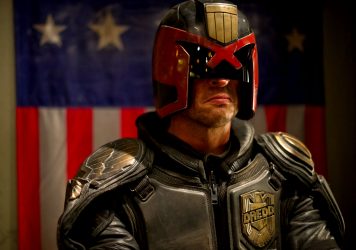
Alex Garland takes another sweep at bringing the infamous 2000AD strip to the screen. The results are sensational.
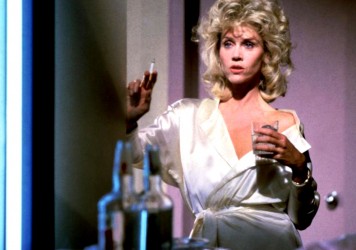
By Mayukh Sen
Sidney Lumet’s The Morning After sees the acting icon at her brusque, contradictory best.